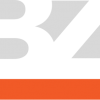Today’s scarcest resource, in spite of the recent recession, is not money. Neither, in spite of our busy schedules, is it time. Today’s scarcest resource is attention.
We are assaulted from every direction with endless email, texts, RSS feeds, Twitter updates, blog posts, news alerts, podcasts. The list goes on and on. Our days are consumed by a stream of electronic input with little, if any, space for focused, concentrated attention on our work.
I regularly hear from clients that their most productive work times are in the evening at home before they go to bed or on the weekend. Why? Because all their distractions are turned off (or at least minimized). But who wants to live that way? Do you really want to work an 8-10 hour day and then do your real work after hours and on Saturday and Sunday?
Not that I want to live off the grid. I love all things digital. It’s just that technology must serve us, not the other way around. Two digital distractions that require our careful attention are email and media.
1. Email
Email overload afflicts us all. A joint study by Microsoft and the University of Illinois found that it takes, on average, 16 minutes, 33 seconds for a worker interrupted by an email to get back to what he or she was doing. Multiply that by the scores of email we receive every day, and we have a problem. A serious problem. Take control:
- Turn off automatic delivery of email to your inbox immediately.
- Set 2-3 specific times in the day when you check email and stick to those times religiously.
- When you read a specific piece of email, take action on it immediately (do it), assign it to a future day (defer it), or send it to the trash (delete it).
- If you must save certain email, create folders to put them in that are outside your inbox (file it). Keep these folders to an absolute minimum.
- Get your inbox to zero every day and absolute zero every week. Stop using your inbox as an alternate task list or a secondary filing system.
2. Media
What goes for email, goes double for electronic media. Media options have exploded exponentially in the last ten years. There are literally millions of sources of information available to us online. Attempts to stay on top of even a minute fraction of these sources produces waves of anxiety and days filled with distraction. Take control:
- Make a list of all the media you consume, online and offline.
- Select your A Players: A small handful of reliable media resources you’ll read, listen to, or watch from beginning to end. I work very hard to make this blog worthy of that kind of consideration.
- Select your B Players: Another small handful of reliable resources you’ll scan for headlines and highlights.
- Get rid of your C Players: Unsubscribe, unbookmark, flag as junk mail, and toss everything else. Everything!
Media consumption should be viewed like eating food. We cannot, and should not, consume media like we’re at an all-you-can-eat buffet. We’ll gorge ourselves to death. We must, however, eat the right kind of food in exactly the right amount to be healthy and strong.
Here’s the bottom line: Technology makes a great servant but a terrible master. Digital distractions will define your life, and not your highest priorities, if you don’t deal with them in a disciplined manner on a daily basis.
For help with information overload, Mark Hurst has written a brilliant little book called Bit Literacy. It’s a quick read and packed with practical steps of action to manage your digital universe. It comes with my highest recommendation.

